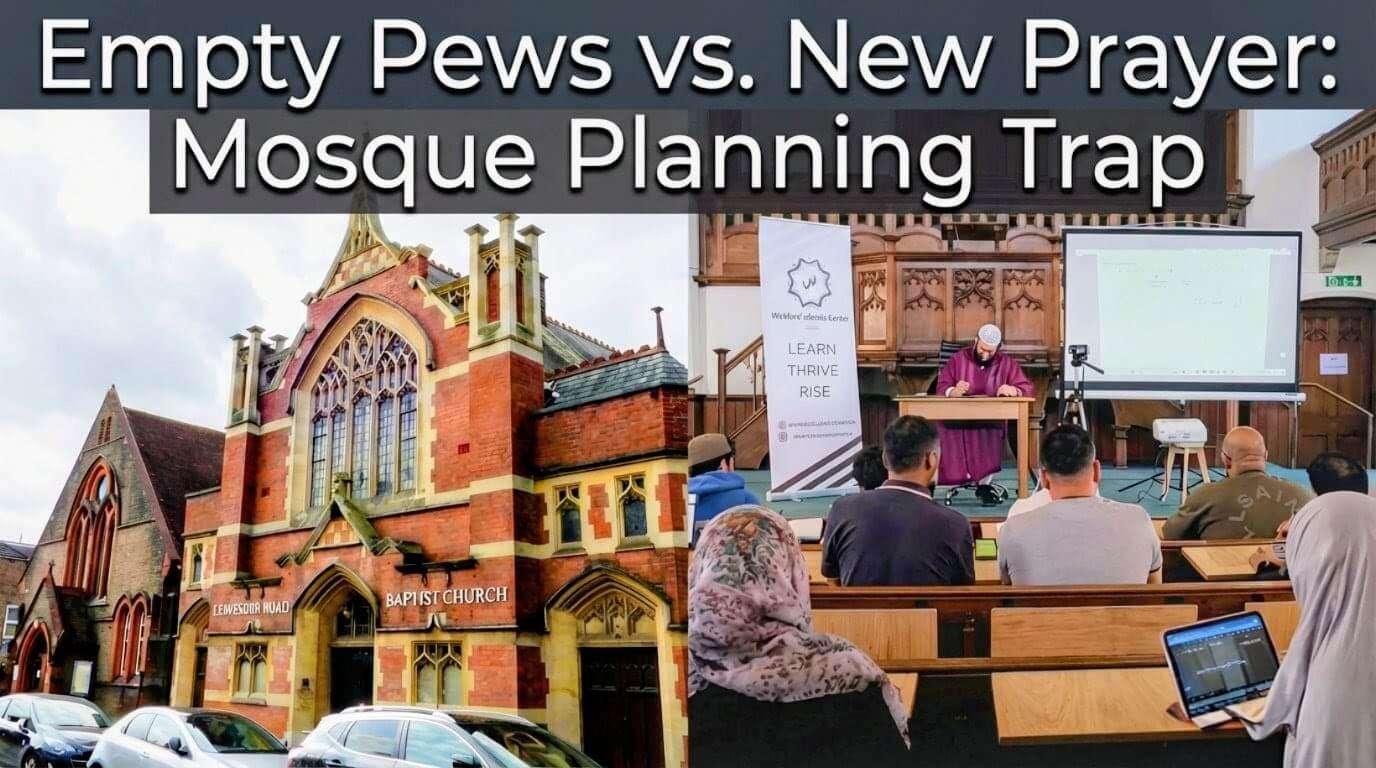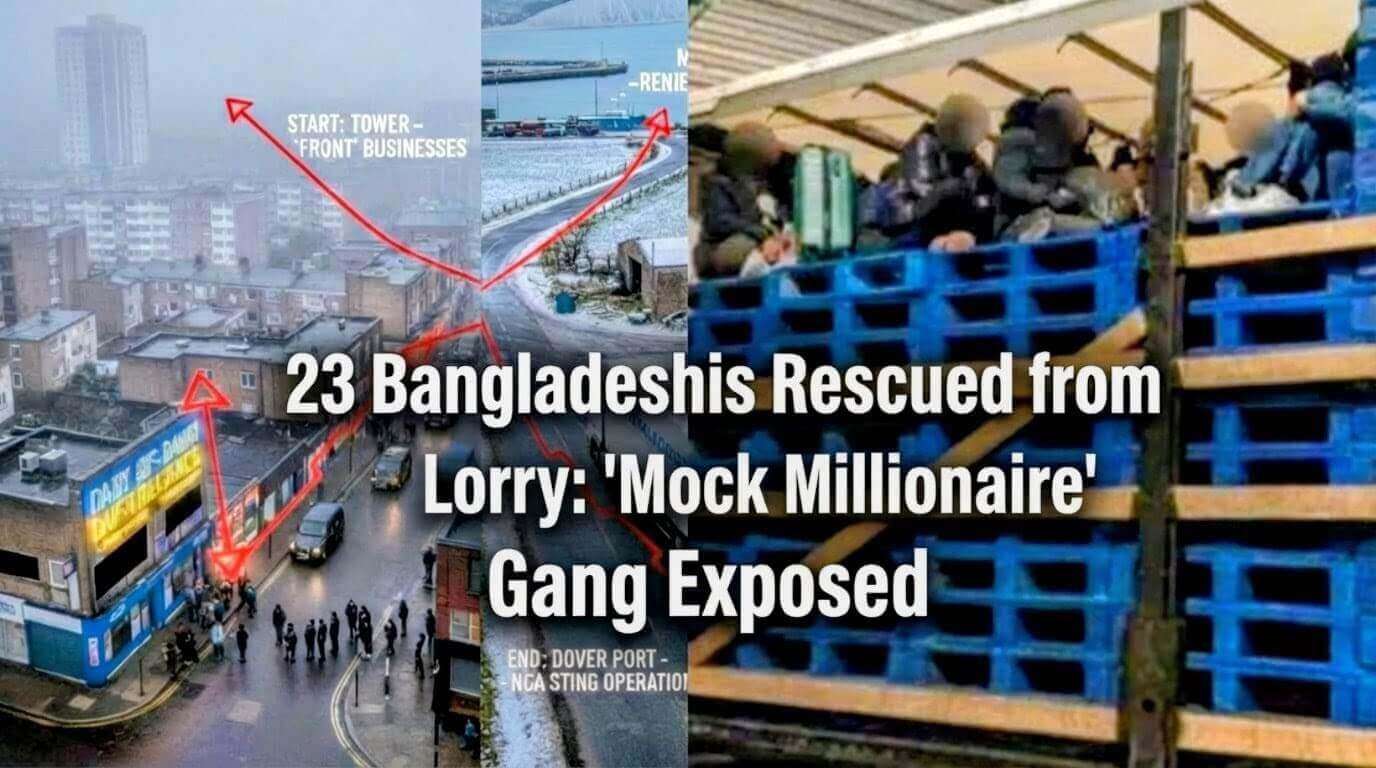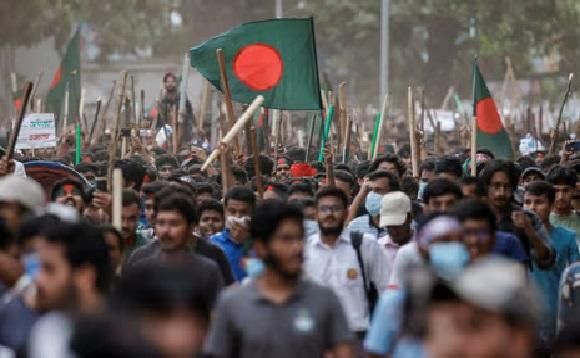In the wake of massive protest of general students over quota reform in the recruitment in the government jobs and violence across the country, the government of Bangladesh should engage Bangladesh missions abroad extensively to portrait and highlight the country against the backdrop vandalism of properties and killings of nearly 200 persons and several thousand injured, said diplomats, policymakers, business leaders.
The international media, including BBC, Reuters and Al Jazeera, and mainstream newspapers of different countries have highlighted the violent incidents of Bangladesh over the last few days.
Keeping in line with the Appellate Division's judgement, the government of Bangladesh has kept 93% government jobs for merit-based recruitment and 5% quota for freedom fighters' children.
According to a gazette notification issued by the Ministry of Public Administration on Tuesday, 1% government jobs will be reserved for ethnic minorities, and 1% for persons with disabilities and third gender communities.
Following the notification, Law Minister Anisul Huq of Bangladesh in a press briefing told the media that work on publishing the gazette was ongoing.
He said the new quota system will be effective for all government recruitments after 23 July. The government believes that the quota reform movement has now concluded, he added.
Highlighting the events leading up to the new quota system, the law minister said the order has been issued according to the apex court's judgement.
Human rights, democracy, labour standard, environment in export-oriented industries and status of civil society members are monitored and observed in the developed countries, sources said
Foreign direct investment (FDI) in Bangladesh dropped by 16 per cent ear-on-year in 2023 compared to the previous year 2022. While talking to this correspondent, an executive director of a multinational company said that Bangladesh government should not leave no stone unturned in branding the country abroad in the western countries as the news of violence has been covered in the media with prominently.
In 2023, the inflow of net foreign direct investment (FDI) declined by 16% year-on-year due to various factors, such as investment uncertainties during an election year and a volatile foreign exchange situation.
According to central bank data, Bangladesh received $3 billion in net FDI last year, compared to $3.48 billion in 2022.
On the slowing FDI inflow, Ahsan H Mansur, executive director at the Policy Research Institute, told The Business Standard, "Bangladesh's macroeconomic situation is now slightly worse than before.
Over 50 per cent of Bangladesh’s total exports go the market of the European countries and new of violence has been published in the media of major importing countries like Germany, France, Spain, Italy and Poland.
Meanwhile, in the wake of widespread protest by students and state crackdown in Bangladesh, Chief Minister Mamata Banerjee on Sunday said that West Bengal will keep its doors open and offer shelter to persons in distress from the neighbouring country.
“I should not be speaking on the affairs of Bangladesh since that is a sovereign nation and whatever needs to be said on the issue is a subject matter of the Centre. But I can tell you this, if helpless people come knocking on the doors of Bengal, we will surely provide them shelter,” Banerjee said at Trinamool Congress’ Martyr’s Day rally in Kolkata.
“That’s because there is a United Nations resolution to accommodate refugees in regions adjacent to those under turmoil,” Banerjee said.
Foreign Minister of the Bangladesh government Dr Hasan Mahmud at his office on Tuesday said “The foreign ministry has directed all Bangladeshi missions abroad to combat rumours being spread regarding the current situation in Bangladesh.”
"Different kinds of rumours have been spreading abroad . . . which is unexpected. We have directed all our missions to inform the expatriate Bangladesh community about the actual scenario of Bangladesh with facts," he told reporters at the ministry.
The foreign minister said he had already briefed foreign diplomats about the situation in Dhaka and elsewhere across the country while his ministry will organise a tour for foreign diplomats today to the spots which were vandalised, including the state-owned service providing establishments which were torched.
Hasan said he informed the diplomats that anti-liberation and anti-state elements and religious extremists, including the BNP and Jamaat, took advantage of the situation by infiltrating the student movement and turning it violent.
Without any instigation, he said, the terrorists group of the BNP-Jamaat torched and vandalised important government establishments, including key-point installations like national data centre, national television, metro-rail, elevated expressway and burnt hundreds of public and private vehicles.
Hasan said the situation has already been improved by the intervention of the law enforcing agencies and the condition will return to normalcy within one or two days.
Replying to a question regarding security of the foreign diplomats, Hasan said, no such situation is created in Bangladesh that foreigners would think of leaving the country.
Responding to another query whether there was involvement of any international quarter behind such destruction, Hasan said, as the foreign minister, he could not make any comment on such matters without verification.
However, he said, BNP and Jamaat have terrorist characteristics while they have connections with international terrorist groups.
Regarding the allegation against Al Jazeera television to broadcast misinformation over the Bangladesh situation, the minister said he asked the Bangladesh Ambassador to Qatar to inform the Al Jazeera headquarters in Doha that its Dhaka office has been making false and fabricated news on the Bangladesh situation.
The foreign minister also criticised Dr Yunus for his statement that was published in today's newspaper saying that in his write-up the Nobel laureate did not mention anything about the targeted attacks which were committed against the state.
Rather, Hasan said, Dr Yunus called upon the foreigners to interfere in Bangladesh's internal matters. "It is very unfortunate, such a statement from a Nobel laureate," he said.
The Foreign Office of the United Kingdom in a statement said “The UK government is deeply concerned by the violence following protests in Bangladesh. The UK supports fundamental freedoms and respect for human rights, including the right to protest and peaceful assembly.
The statement also said “We urge all sides to end the violence and find a peaceful way forward. We are very concerned about the level of violence, in particular violence against peaceful student protesters.”
Meanwhile, the United States has said they remain deeply concerned by the reports of ongoing telecommunications disruption across the country.
"We remain deeply concerned by reports of ongoing telecommunications disruptions across the country which limit the ability of people in Bangladesh, including American citizens there, to access critical information," Spokesperson at the US Department of State Matthew Miller told reporters at a regular briefing on July 23.
He said that is something they have spoken out against in other countries, and they speak out against it when it comes to Bangladesh as well. "We will continue to make those concerns known."
Earlier, Miller said they continue to closely follow developments in Bangladesh and called for calm and de-escalation.
The US said they support "peaceful assembly and peaceful protests" but in all cases, they ought to be carried out peacefully.
The government said it is working overnight to fully restore internet services as broadband internet was restored in some areas on a priority basis.
The attackers torched and vandalised important government establishments, including key point installations like national data centre and optical fibre causing nationwide internet connectivity disruption.
Now a peaceful environment prevails in the country and public and private offices were reopened on Wednesday (11am to 3pm) amid relaxation of curfew.
Expressing optimism over the return of normalcy in the country soon, Foreign Minister Hasan Mahmud on Tuesday said the situation will get back to normalcy within a couple of days.
…… The United States has said they remain deeply concerned by the reports of ongoing telecommunications disruption across the country.
"We remain deeply concerned by reports of ongoing telecommunications disruptions across the country which limit the ability of people in Bangladesh, including American citizens there, to access critical information," Spokesperson at the US Department of State Matthew Miller told reporters at a regular briefing on July 23.
He said that is something they have spoken out against in other countries, and they speak out against it when it comes to Bangladesh as well. "We will continue to make those concerns known."
Earlier, Miller said they continue to closely follow developments in Bangladesh and called for calm and de-escalation.
The US said they support "peaceful assembly and peaceful protests" but in all cases, they ought to be carried out peacefully.
The government said it is working overnight to fully restore internet services as broadband internet was restored in some areas on a priority basis.
The attackers torched and vandalised important government establishments, including key point installations like national data centre and optical fibre causing nationwide internet connectivity disruption.
Now a peaceful environment prevails in the country and public and private offices were reopened on Wednesday (11am to 3pm) amid relaxation of curfew.
Expressing optimism over the return of normalcy in the country soon, Foreign Minister Hasan Mahmud on Tuesday said the situation will get back to normalcy within a couple of days.
Meanwhile, the Indian Ministry of External Affairs has said the protests in Bangladesh are an internal affair of Bangladesh.
The high commission of India in Dhaka is in touch with local authority for the safety of their nationals in Bangladesh, said a MEA spokesperson on Friday in New Delhi.
He said they remain committed to provide all possible assistance to Indian nationals in Bangladesh.
There are around 8,500 students and 5,000 Indian nationals living in Bangladesh.
The MEA spokesperson also said they are aware of the measures taken by local authorities.
The government of India issued an advisory for Indian nationals including their students who are living in Bangladesh.
Helpline numbers remain operative for 24 hours for the safety and assistance if required. The high commission in Dhaka will provide updates regularly, said the Indian MEA.
Meanwhile, the Indian High Commission in Dhaka on Thursday issued an advisory asking members of the Indian community in Bangladesh to avoid travel and minimize movement outside their residences in view of widespread protests in the country following the government’s decision to close all public and private universities.
The advisory said in case of any emergency or need for assistance, the Indians in Bangladesh should reach out to the High Commission or the Assistant High Commissioners.
The protests in Bangladesh started in the wake of demands for reform of the country’s quota system for civil service jobs, which reserves positions for specific groups, including descendants of those who participated in the 1971 war of independence against Pakistan.
On Wednesday, protests intensified as students clashed with law enforcement in various locations across Dhaka. Police fired tear gas and rubber bullets to disperse students protesting against the government’s job quota system.
Authorities also ordered the indefinite closure of all public and private universities.
Meanwhile, Bangladesh diplomats get the lowest allowance compared to countries like India, Pakistan, Sri Lanka, the Maldives, Nepal and Bhutan in most overseas countries.
The government of Bangladesh last revised the foreign allowances of MOFA officials in 2012. During the last 12 years, the cost of living abroad has increased several times leaving Bangladeshi diplomats struggling to maintain a decent life abroad, said at least two dozen Bangladeshi diplomats. Bangladesh government has 81 missions across the globe, sources said.
Sources said Bangladeshi diplomats are often reluctant to be posted in European countries except the UK as the government of Bangladesh allocates tuition fees for maximum two children, that is, to the tune of 20,000 US dollars or 85 per cent of total tuition fees, which one is lower, said a MOFA official.
Education is usually free at public schools in the UK, the USA, Australia and Canada, and most Bangladesh diplomats prefer to get posting in ‘English-speaking countries'. 'Education is highly expensive in English medium schools in non-speaking English countries in Europe, 'sources said .
As a part of upholding the country’s image in the international arena, the government of Bangladesh has given the highest priority in promoting Bangladesh’s history, culture, heritage and tourism etc. abroad with a view to establishing Bangladesh as a progressive, secular, effective and capable country. Foreign missions abroad require holding seminars, workshops, publicities and exhibitions to highlight benefits of doing business in Bangladesh at regular inter-level, sources said .
The Ministry of Foreign Affairs formulates and executes the foreign policy of the Government of Bangladesh. The core guidance of policy formulation comes from the relevant section of the Constitution of Bangladesh. In developing the external policy of the republic, the Ministry draws from the laws of the land, acts of the Parliament, international treaties that Bangladesh is a State party to, and other customary sources.
The Foreign Ministry’s goals are to develop and maintain friendly relations with other states and foster cooperation with developed, developing and least developed countries, and various regional, sub-regional, political and economic groups.
The foreign ministry pursues Bangladesh’s external economic and trade interests, promotes its culture abroad, and disseminates information to foreign countries. It safeguards the legal rights and promotes interests of its citizens and other legal entities in foreign countries. The ministry discharges its diverse duties through its headquarters in Dhaka and through its network of missions aboard. The work of the ministry is conducted by a number of wings. These divisions gather, analyze and process information, set priorities and draw up options according to the allocation of their individual areas and responsibilities.
Under the visionary leadership of Prime Minister Sheikh Hasina, Bangladesh has been marching towards the ‘Golden Bengal’ envisioned by the Father of the Nation Bangabandhu Sheikh Mujibur Rahman. Bangladesh has celebrated the golden jubilee of its independence and the birth centenary of Bangabandhu.
Confirmation of Bangladesh’s graduation into a developing country came at the time of the momentous and joyful occasion. Graduation was indeed a remarkable milestone for the Bangladesh government that has been made possible by the right steps and prudent policies and strategies. Furthermore, we are now among the five fastest growing economies in the world, and is ranked 41st in terms of GDP size.
Over the last 50 years, Bangladesh economy has progressed well and is now considered as one of the emerging countries in the region. Bangladesh has surpassed Pakistan and Nepal in social and economic indicators, and even countries like India, Sri Lanka and the Maldives in some social indicators. During the 13 years of the government, our poverty rate came down from 33.4 percent to 20.5 percent. Per capita income jumped nearly fourfold to US$ 2,824.
The Vision 2041 stipulates elimination of extreme poverty and securing the upper middle-income country status by 2031 and becoming a high-income country by 2041. A number of large infrastructure projects, such as Padma Multi-Purpose Bridge, Metrorail, Bangabandhu Sheikh Mujibur Rahman Tunnel, are going to open for traffic this year transforming the communication infrastructure of the country.
Citing an example, a MOFA official told this correspondent that the Russian mission in Dhaka has increased social networking by hosting events every month since Russia invaded parts of Ukraine since the war began February 2022. The Russia-Ukraine war has been continuing with no sign of let-up as of now. To gain the support of Bangladeshis, the Russian mission in Dhaka is inviting Bangladeshi political, civil and military bureaucrats, cultural personalities, students, politicians at regular interval. Journalists and members of the civil society at regular social gatherings. Even some powerful EU countries are surprised at the social gathering of the Russian diplomats. European countries are major trading and development partners of Bangladesh.
Against this backdrop, the top policy-makers in Bangladesh should put their second thought on revising the ‘foreign allowance of Bangladeshi diplomats, at least, to the level of Pakistan and Nepal to brand Bangladesh properly.
Meanwhile, Bangladesh diplomats abroad get the lowest allowance among South Asian countries that perhaps stand in the way of branding and promoting the country to the stakeholders concerned properly, sources said.
Sources in Dhaka and abroad said Bangladesh diplomats get the lowest allowances compared to counties like India, Pakistan, Sri Lanka, the Maldives, Nepal and Bhutan in most overseas countries.
Sources said Bangladeshi diplomats are often reluctant to be posted in European countries except the UK as the government of Bangladesh allocates tuition fees for maximum two children to the tune of 20,000 US dollars or 85 per cent of allowance, which one is lower.
The government last revised the foreign allowance for the officials of the Ministry of Foreign Affairs in 2012. During the last 12 years, the cost of living abroad has increased several times leaving Bangladeshi diplomats struggling to maintain a decent life abroad, said at least two dozen Bangladeshi diplomats.
Over the last 50 years, Bangladesh economy has progressed well and is considered as one of the emerging countries in the region. Bangladesh has surpassed Pakistan and Nepal in social and economic indicators, and even countries like India, Sri Lanka and the Maldives in some social indicators.
Citing an example, he said the Russian mission in Dhaka has increased social networking by hosting events at regular intervals since Russia invaded parts of Ukraine and the war began in February 2022.
The Russia-Ukraine war has been continuing with no sign of let-up. The Russian missions in Dhaka are inviting Bangladeshi political, civil and military bureaucrats, cultural personalities, students, politicians. Journalists and members of the civil society at regular social gatherings. Even some powerful EU countries are surprised at the social gathering of the Russian diplomats.
The midterm review of the Finance Ministry said “Considerable publicity will be done to highlight Bangladesh’s history, culture and tourism attractions in the international arena to build its image as a secular, progressive and potential state. This bright image of the country will positive impacts for the country.
‘Economic diplomacy’ is an important tool in today’s world nowadays. Bangladesh missions abroad hold seminars, workshops and exhibitions highlighting benefits of doing business in Bangladesh, expanding export markets of goods and manpower and attracting foreign direct investment (FDIs)
The Bangladesh economy has been going through different patches in recent times. Against this backdrop, the policy-makers in Bangladesh should put their second thought on revising the ‘foreign allowance of Bangladesh to the level of Pakistan and Nepal initially and later to the level of India and Sri Lanka, said a dozen of Bangladesh diplomats.








.svg)

